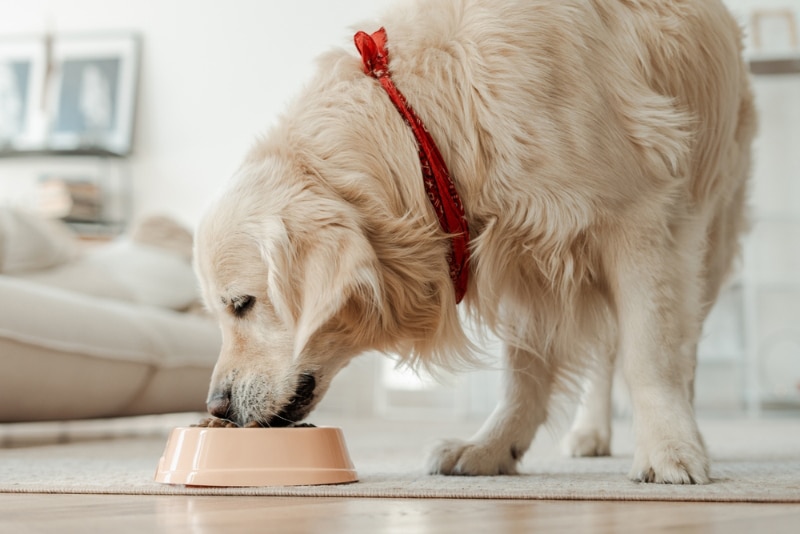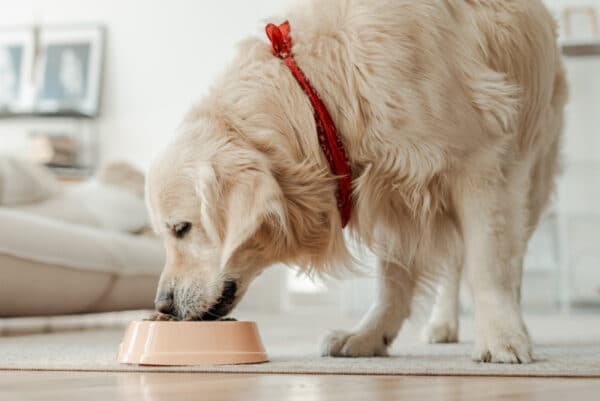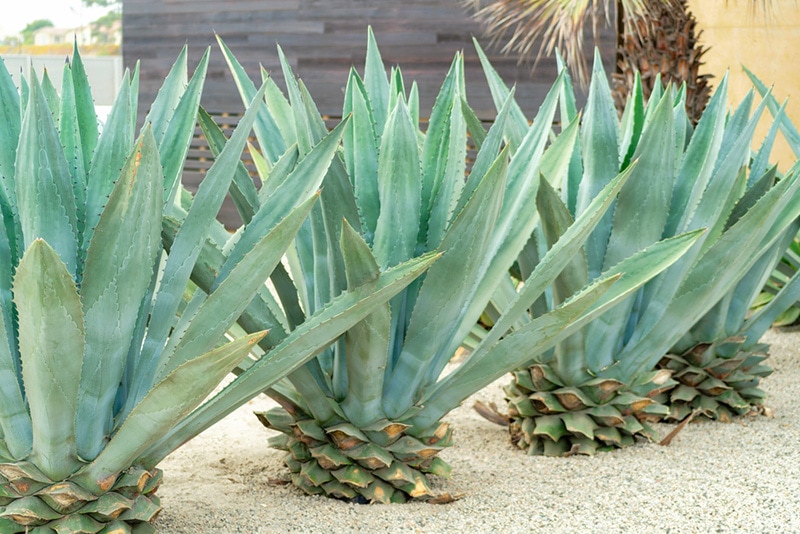Nutrition and a healthy diet play a significant role in a dog’s health and well-being. Dog owners must stay on top of their dogs’ nutritional intake and ensure that they’re eating a well-balanced diet that supports daily body functions. However, it can be challenging and overwhelming to keep track of every single nutrient your dog needs. So, it’s often best to work with your veterinarian to ensure your dog’s eating a healthy diet that’s appropriate for their current life stage and lifestyle.
To make things easier for you, we’ve compiled a list of many of the essential nutrients that dogs need to maintain their health. Having a general overview and understanding of the purpose of each nutrient will help you better understand how to feed your dog a healthy diet. Luckily for dog owners, many high-quality, balanced commercial diets are available where the research has already been done for you. So ensuring your dog is fed a balanced diet has been made a whole lot easier.

The 6 Essential Nutrients for Dogs
1. Protein
Protein is one of the most significant essential nutrients in a dog’s diet. It is made up of amino acids that are needed for various daily bodily functions. Protein is needed for the formation and maintenance of cartilage, ligaments and tendons. It helps build and repair muscles, form new skin cells, and grow hair. It’s necessary for creating certain hormones and enzymes, and it’s a source of energy for dogs.
Dogs need 22 amino acids to maintain their health, but 10 of these cannot be produced by the dog themselves and therefore must be consumed in the diet. These are known as essential amino acids. Good sources of protein include lean meats, eggs, and dairy products. Your dog can also consume protein from grains and legumes.
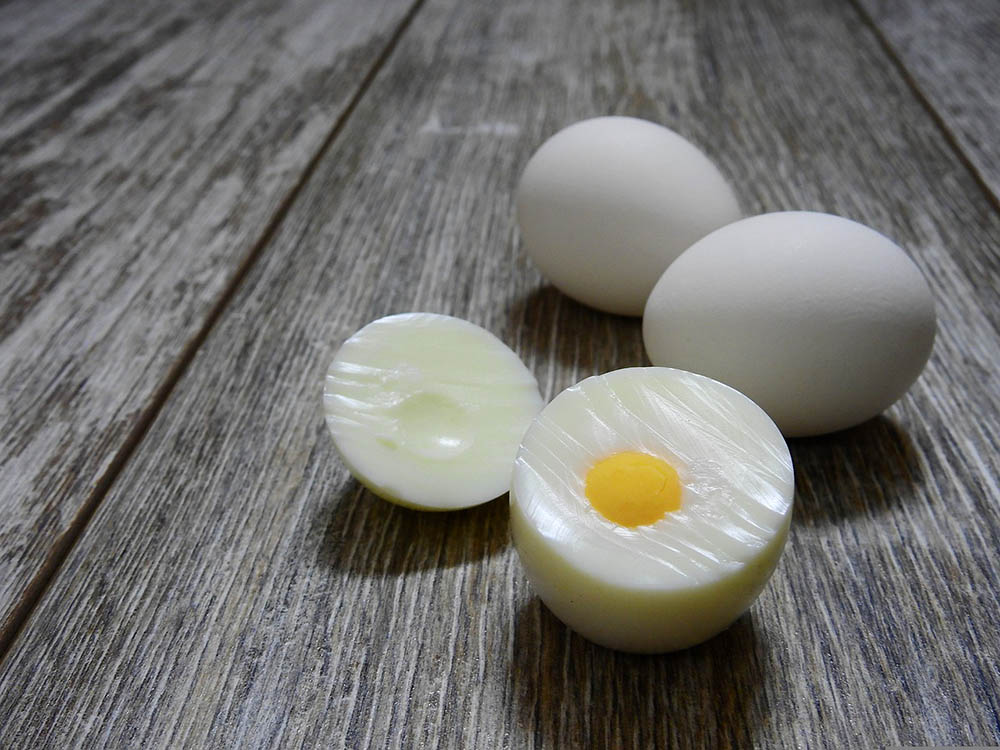
2. Fat
While fat is often seen as a bad thing, it’s actually a necessary part of a dog’s diet. Dogs mainly need two types of fats:
- Triglycerides
- Fatty acids
Triglycerides serve your dog’s body in many ways. They are the main source of stored energy in mammals, reduce heat loss, provide cushioning and can help the body transport molecules. They’re also one of the structural elements in cell membranes.
Fatty acids also help the body in various capacities. They can nourish and protect skin and coat health. Some fatty acids play a role in healthy eye and brain development, while others help reduce inflammation.
Similar to some amino acids, some fatty acids, known as essential fatty (EFAs) acids can only be found from food sources. These EFAs are Omega-3 and Omega-6. Common sources of fat for dogs include chicken fat, beef fat, fish oil, and flaxseed oil.
3. Vitamins
Vitamins are essential for the body to perform many kinds of activities. They play a role in supporting healthy bones and joints, healing wounds, and regulating hormones. In general, dogs need five kinds of vitamins:
- Vitamin A (retinol)
- Vitamin D (cholecalciferol)
- Vitamin E (tocopherol)
- Vitamin K (phylloquinone)
- B vitamins
- Vitamin B1 (thiamine)
- Vitamin B2 (riboflavin)
- Vitamin B3 (niacin)
- Vitamin B5 (pantothenic acid)
- Vitamin B6 (pyridoxine)
- Vitamin B9 (folic acid)
- Vitamin B12 (cobalamin)
Dogs also need to consume choline. Choline is neither a vitamin nor a mineral, but it’s often categorized with vitamins because it functions similarly to B vitamins.

4. Minerals
Like vitamins, minerals help maintain and sustain certain body functions. They help with maintaining strong bones and teeth, controlling body fluids, and converting food into energy. Minerals can be categorized into two general types:
- Macrominerals
- Trace minerals
Dogs require larger quantities of macrominerals than trace minerals.
- Calcium
- Chloride
- Magnesium
- Phosphorus
- Potassium
- Sodium
- Sulfur
- Chromium
- Copper
- Fluorine
- Iodine
- Iron
- Manganese
- Selenium
- Zinc
It’s important to make sure your dog consumes an appropriate amount of each mineral because minerals work together in many processes that occur in the body. So, if your dog is deficient in or has too much of a particular mineral, it can cause other minerals to perform in different ways. For example, if you have too much phosphorus in the diet, it can cause the body to start removing calcium from the bones which leads to other complications.
5. Carbohydrates
While it’s commonly believed that dogs are carnivores, they’re actually omnivores. The average dog doesn’t necessarily require carbohydrates in their diet to survive. However, research has shown that pregnant and lactating dogs benefit from eating more carbohydrates.
Dogs can digest a variety of carbohydrates well as long as they’ve been cooked or prepared properly. Carbohydrates can be used as energy, and they’re a good alternative for dogs with health issues that prevent them from eating a high-protein diet.
It’s also important to note that dogs and wolves are different animals with different diets. While wolves are carnivores, dogs have evolved in such a way that they have many more genes that code for the production of amylase, a pancreatic enzyme that allows them to digest starch. So, they can process and metabolize carbohydrates much better than wolves can.
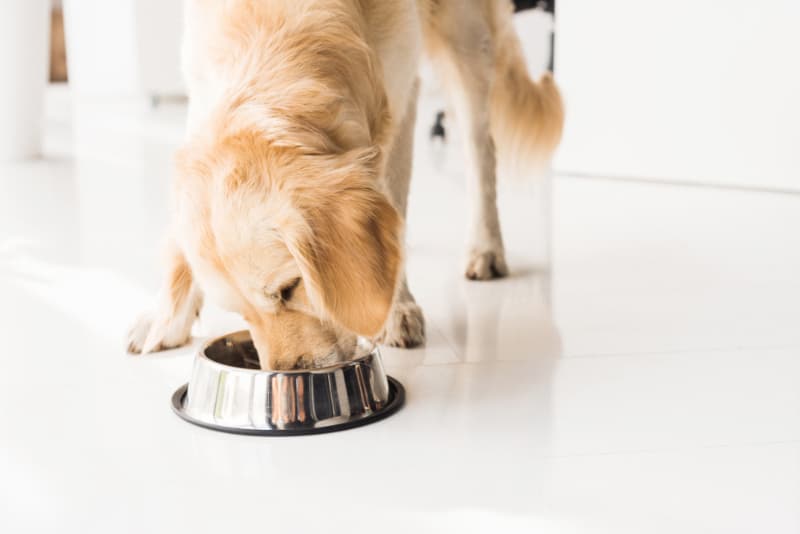
6. Water
Water is absolutely essential to a dog’s well-being. Dogs experience many health benefits from staying hydrated. Water plays a role in regulating body temperature and organ function and is also needed for healthy digestion, amongst a host of other things. Severe dehydration can lead to significant health complications that can become fatal.
In general, dogs need to drink 1 ounce of water per 1 pound of body weight. So, a 32-pound dog must drink about 32 ounces, or 4 cups, of water a day. If your dog doesn’t particularly like drinking from a water bowl, you can try switching to a pet water fountain. Another way to help your dog stay hydrated is to incorporate wet food or broth into your dog’s meals.

How to Meet Your Dog’s Nutritional Needs
Your dog’s nutritional needs will vary depending on their life stage, breed, and lifestyle. Puppies, adult dogs, and senior dogs all have different nutritional requirements. Puppies usually require more nutrients that support healthy growth and development, while senior dogs may not need to consume as many calories as they did when they were younger.
Different dog breeds can also have distinct nutritional needs. For example, smaller dogs typically have a faster metabolism and therefore need to consume more calories per pound body weight. Larger dogs may benefit from eating diets that are supplemented with bone and joint support. Your dog’s lifestyle will also affect their diet. Athletic and working dogs typically need to eat high-protein diets, while less active dogs don’t need to consume as much protein.
The best way to ensure your dog’s nutritional needs are being met is to communicate with your veterinarian. Your veterinarian can help you track your dog’s health and let you know if they have any nutrient deficiencies. They can also recommend dog food and diets that would benefit your dog and let you know what sorts of diets they should avoid.
Conclusion
All dogs need to consume specific essential nutrients to live healthy and happy lives. However, they’ll have different requirements depending on their life stage, breed, health status and activity level. Since it’s difficult to keep track of your dog’s nutritional intake, it’s best to consult your veterinarian who will advise you on a high-quality, complete dog food. Your vet can assess your dog’s age, breed, lifestyle, and any health issues and help you determine what diet is best for your dog.
Featured Image Credit: AYO Production, Shutterstock

